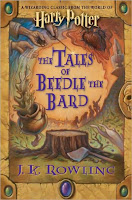Smiley, Jane. Thirteen Ways of Looking at the Novel. New York: Anchor, 2006.
 All I knew of Jane Smiley was that she wrote Moo, and that Moo was a fictionalized account of her teaching in a midwestern creative writing program (I think). I never knew which one until now, after I just highlighted her name up there and used Mozilla's clever little Ubiquity app to Wikipedia her in a new browser tab.
All I knew of Jane Smiley was that she wrote Moo, and that Moo was a fictionalized account of her teaching in a midwestern creative writing program (I think). I never knew which one until now, after I just highlighted her name up there and used Mozilla's clever little Ubiquity app to Wikipedia her in a new browser tab.It was Iowa State.
At any rate, I thought this book would be light and breezy, probably because of ill-informed notions I had of Smiley as a writer (I guess I placed her near Anne Tyler in some kind of continuum), and because of the folksy title. The conceit behind the book is that shortly after Sept. 11, 2001, Smiley found herself not just stuck/bored with the novel she'd been writing, but also unsure about the importance of The Novel in general. So she set the book aside and read 100 novels over the next three years. The notes she took on these novels (ranging from The Tale of Genji [1004] to Jennifer Egan's Look at Me [2001]) form the basis for her discovery on what the novel is and can do and should do.
Some of this stuff is arbitrary and valuable only in Smiley's need to construct some new apparatus to set her book aside from the dozens of others like it. For her it's the Circle of the Novel, which is a kind of clock face with some form of discourse at each of its numbers. Going around clockwise it's this:
- Travel narrative
- History
- Biography
- Tale
- Joke
- Gossip
- Diary/Letter
- Confession
- Polemic
- Essay
- Epic
- Romance
So, it's neat. Lots of the book is Aristotelianly neat in how much sorting and ordering into types gets done. Also, the whole second half contains extended summaries/analyses of the 100 novels she read,* which is handy for any level of English student.
My favorite bit is when she gives a clear precis to Forster's comparison between James and Proust. The former, Forster argues, works too hard to make his readers aware of his novels' perfected structures, due in part to James's interest in elevating the novel as art, which is inherently self-conscious. "I am an object to be appraised," James's novels say to us. Whereas Proust, well I'll just quote it:
Forster proposes that the novelist in search of artfulness substitute the model of music for the model of painting, and that he attempt to attain a kind of internal pattern analogous to rhythm. He uses In Search of Lost Time as his example. [. . .] The huge French novel is not asked to limit itself and fix itself inside a structure, "and yet it hangs together because it is stitched internally" (p. 165). (142)Zadie Smith talks a lot about the "scaffolding" her first three novels have needed, and I guess she means that she's needed to follow an external form (be it Forster himself, or Kabbalah) in order to put her stories together. This idea reminds me of what I learned from Christine Schutt last summer, that stories can grow (and should grow) from the writer's commitment to his sentences. Don't "raise the stakes" or "add to the conflict" as a way to move toward resolution, simply keep being careful with your sentences, connect them and juxtapose them, and when you get to the end you'll have by default a cohesive story.
Turns out you can do this with a novel, too. I'll have to try it in six years or so, because the novel I'll write, oh, someday, already has an external structure to follow: the 18 holes of a golf game.
===
* Here are the books she read that I've read, just to give you (well, me) an idea:
20. Mary Shelley, Frankenstein
23. Stendhal, The Red and the Black
28. Emily Brontë, Wuthering Heights
30. Harriet Beecher Stowe, Uncle Tom's Cabin
33. Gustave Flaubert, Madame Bovary
41. George Eliot, Middlemarch
43. Henry James, The Portrait of a Lady
44. Oscar Wilde, The Picture of Dorian Gray
46. Kate Chopin, The Awakening
47. Sir Arthur Conan Doyle, The Hound of the Baskervilles
48. Joseph Conrad, Heart of Darkness
51. Ford Madox Ford, The Good Soldier
56. E.M. Forster, A Passage to India
57. F. Scott Fitzgerald, The Great Gatsby
[60. Marcel Proust, In Search of Lost Time (I read book one, not the whole thing, but I'll include it here because I can't believe Smiley read the whole thing either.) UPDATE: Sorry, Ms. Smiley, I sit corrected.]
63. William Faulkner, As I Lay Dying
68. P.G. Wodehouse [I read one, but none of the four Smiley read, but aren't they all the same?]
72. Vladimir Nabokov, Lolita
75. Harper Lee, To Kill a Mockingbird
91. Nicholson Baker, Vox [didn't finish! it]
98. Zadie Smith, White Teeth
100. Ian McEwan, Atonement
So, 22. God, I kicked your ass on that one.










